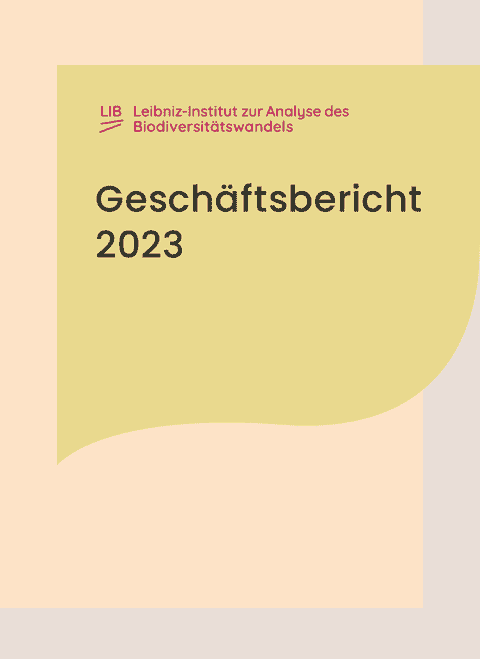The Leibniz Institute for the Analysis of Biodiversity Change (LIB) is a merger of the Zoological Research Museum Alexander Koenig (ZFMK), Bonn, and the Centre for Natural History at the University of Hamburg. Since July 2021, we have been working across locations at the Museum Koenig Bonn and the Museum der Natur Hamburg on researching and communicating biodiversity change. With Prof Dr Bernhard Misof as Director General and Adrian Grüter as Commercial Director, the LIB currently employs around 300 people from around 40 nations.
The LIB is divided into four large centres across all locations with the higher-level bodies, the Foundation Council, the Directorate General - advised by the Scientific Advisory Board - and the Directorate. The Central Services support all centres and committees of the LIB. Our cross-cutting themes are "Biodiversity in Transition" and "Biodiversity in Dialogue". They run through our centres and connect them with each other.
The heads of the Centre for Taxonomy & Morphology (ztm) and the Centre for Knowledge Transfer (zwt) are based in Hamburg, while the heads of the Centre for Molecular Biodiversity Research (zmb) and the Centre for Biodiversity Monitoring & Conservation Research (zbm) work from Bonn.
The Foundation Act and the statutes of the LIB define the legal structure and tasks of the institute.
The LIB is divided into four large centres with the higher-level committees, the Foundation Council, the Directorate General - advised by the Scientific Advisory Board - and the Directorate across all locations. The Central Services support all centres and committees of the LIB. Our cross-cutting themes are "Biodiversity in Transition" and "Biodiversity in Dialogue".
The heads of the Centre for Taxonomy & Morphology (ztm) and the Centre for Knowledge Transfer (zwt) are based in Hamburg, while the heads of the Centre for Molecular Biodiversity Research (zmb) and the Centre for Biodiversity Monitoring & Conservation Research (zbm) work from Bonn.
The Foundation Act and the statutes of the LIB define the legal structure and tasks of the institute.

The LIB museums in Bonn and Hamburg are excellent research institutions that reflect their knowledge of biodiversity in exhibitions and events together with children, young people and adults. The Museum Koenig Bonn and the Museum der Natur Hamburg offer visitors insights into some of their 16 million natural history collection objects and invite them to discuss and experiment with various events and educational programmes.
In accordance with the current statutes, the LIB Foundation Board is responsible for the legality, appropriateness and economic efficiency of the foundation's activities and has a comprehensive right to information. The Chairman of the Foundation Council is Dr Michael H. Wappelhorst, Ministry of Culture and Science of the State of North Rhine-Westphalia.
The Scientific Advisory Board has the task of critically monitoring and promoting the scientific activities and development of the Institute. Ombudspersons ensure that the Leibniz Code of Good Scientific Practice at the LIB is an explicit contractual obligation. The representative body for severely disabled employees promotes the integration of severely disabled people into the institute, represents their interests and provides them with advice and support. The LIB is "audit berufundfamilie" certified.
